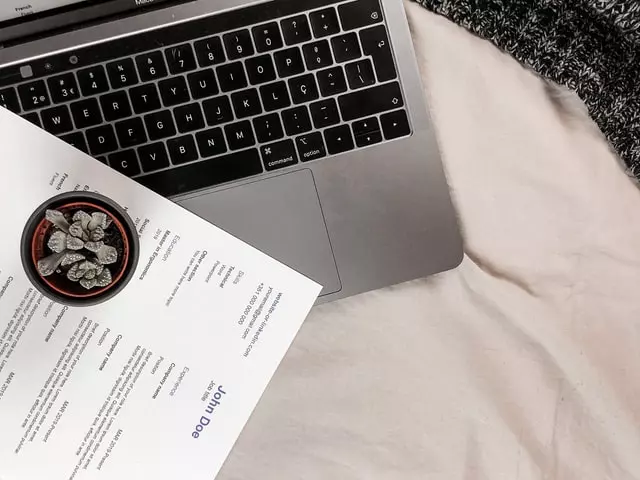If you send in large numbers of resumes and receive minimal responses, you may need to change a few things before continuing to apply for jobs. Many employers never see your resume unless it passes through a computer program. Placing specific words in your cover letter and resume can help your resume make it through these programs. Even if your work experience matches the job description, many other details on your may contribute to a rejection. Keywords, work history, and customized cover letters change the way your resume moves through the system.
Keywords
With computers taking over many manual tasks, job-seekers need to change the way they promote themselves. In modern times, a pair of human eyes may never see your resume if it doesn’t make it through a computer screening. You can find the right keywords to use in your resume by checking the job description area of the job listing. You may have writing experience for example, The job description, however, may specifically ask for a specific type of writing, such as marketing or white papers. Use words in your resume that you see in the job description and requirements. When your resume gets scanned, the computer program may look for these words and throw out resumes that do not match.
Cover Letter Details
Unlike your resume, you need a completely different cover letter for each job. To write an impressive cover letter, read the job description thoroughly and do a little research on the company or hiring manager. In a short cover letter you need to cover several subjects without simply restating the information in your resume. An effective cover letter covers the following items.
- The reason you want to work with the company and why you are a good fit
- A clear understanding of the company goals or a suggested solution to their problem or project
- Show them you are human. Your cover letter gives you a chance to show your personality instead of just your work experience.
Your cover letter should combine both a personal touch and professional information. Edit your cover letter properly, as an employer may ignore an application with grammar mistakes and poor organization. Consider your cover letter an introduction to the employer you would like to meet.
Careful With the Work History
A variety of work history looks good on a resume, however, you also do not want to overdo this section. Older adults do not need to list every job they held since the age of 16. Most early jobs are not relevant to careers later in life. While your potential employer can also find out your age, a long work history can show your age much quicker and may lead to an ignored resume. Work history should show consistent employment with minimal gaps and relevant experience. If you have employment gaps look at resume examples to find creative ways to explain them. You may have lapses in employment due to having a baby or going to school, for example.
Routine Updates
If you apply for jobs for an extended period of time, you may need to update your resume during this time. If you do not receive an adequate number of interviews, you may need to change a few things. Edit your resume to match the keywords of each job description and add new skills or education, if necessary. Keep your resume fresh by looking at examples online or have a friend critique it for you.
When applying for a new job, your cover letter and resume get seen before you ever meet a potential employer. These two items should share your personality and accomplishments efficiently. In modern times, businesses and recruiters often use computer programs to screen applicants. This makes it harder to make a personal impression, as your resume can get thrown out before a human ever reads it. Implement key words and follow a good template to get noticed.




